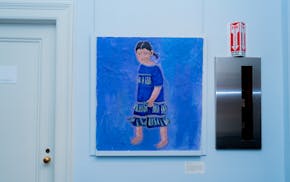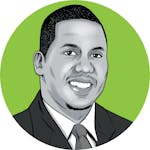A few months ago, I began to feel a fatigue that would linger and tumble into the rest of my day. There is a baseline level of exhaustion that comes with kids and work and friends and life. And anything after age 40 seems more arduous, honestly.
But this fatigue had spilled into my other obligations and my lengthy task lists had seemed impossible to complete by the end of the day. While I always rise early enough to do what's necessary to start my day, those pre-sunrise awakenings were never my preference.
I am a bona fide night owl.
Some days, I'd get up at 5:30 a.m. or earlier. Other days, I'd beat the kids' alarm by a few minutes. On weekends, I just tried to recoup any rest that I'd lost during the week, an often unsuccessful task with work and family responsibilities.
Because of my work in the sports world, however, I'm an expert at getting to the airport by 4:30 a.m. and catching a 5:45 a.m. flight. But again, I have to do that. I would never get up early simply because I believed it offered a real benefit.
Plus, I resented the morning people. You know the type. Their early mornings are a whole persona. By the time the rest of us hit snooze, they've already gone to the gym, read their favorite books and finished a few paintings.
There are conflicting studies on the value of rising early and I also don't adhere to any concept that says one philosophy works for everyone. But a book from the early 1900s made me consider the possibility that a better morning might lead to a more fruitful day for me.
"The obvious thing to do is to circumvent your ardor for your ordinary day's work by a ruse," said Arnold Bennett in "How to Live on 24 Hours a Day," published in 1910.
"Briefly, get up earlier in the morning. You say you cannot. You say it is impossible for you to go earlier to bed [at night] — to do so would upset the entire household. I do not think it is quite impossible to go to bed earlier at night. I think that if you persist in rising earlier, and the consequence is insufficiency of sleep, you will soon find a way of going to bed earlier. But my impression is that the consequence of rising earlier will not be an insufficiency of sleep. My impression, growing stronger every year, is that sleep is partly a matter of habit — and slackness."
That did it for me.
I decided that I would wake up at 5 a.m. and work out.
The first few days felt silly. I sat in bed wondering what I'd done to my life. I felt like a trend-chasing fraud or some self-help-guru acolyte. It did not feel like me. "Who am I doing this for?" I thought one morning as I sat in bed.
My body craved the night.
It's all I knew.
Even in high school, I would stay up on Saturday nights to watch "Saturday Night Live" and "Showtime at the Apollo." And I have old-school playlists filled with Hall & Oates and the Doobie Brothers only because of those late-night infomercials where they promised you 10 CDs for five easy payments of $9.99.
But the mornings began to grow on me.
When I got up and worked out, I had a burst of energy and peace throughout the day. By the time I'd dropped off the kids at school, I felt like I'd already completed a major task.
At 9 a.m., I'd suddenly felt victorious and the workday had not yet commenced.
Sometimes, instead of exercising, I'd just carve out time to read or finish a project. Those mornings, I've found, are great opportunities to fold laundry while I watch "Martin" reruns. And then there were times when I would just relax and think about the day ahead. It was a calming experience.
After a few weeks, I began to feel as if I'd somehow hacked the day and had a jump-start on the world.
All those smiling, energetic morning people? Well, I could understand their mojo. I had momentum by sunrise and my tasks seemed easier to complete. I had more focus. But the fatigue had also switched to another portion of the day.
By 7 p.m. or so, my body wanted to prepare for bed. I'm still working on that adjustment. I have witnessed the benefits, however, of an earlier and, more importantly, consistent start to my day.
I'm not batting 1.000 here.
I still have those snooze-filled mornings but now, when I miss a 5 a.m. alarm, I always feel like tomorrow offers an opportunity to try again and regain the momentum I'd missed the previous day.
I don't know if a 5 a.m. start works for everyone. But I have noticed a difference.
I've always searched for a slice of stillness amid the chaos each morning.
I guess I just had to get up earlier to capture it.
Myron Medcalf is a local columnist for Star Tribune and recipient of the 2022 Society of Professional Journalists Sigma Delta Chi Award for general column writing.

Medcalf: This summer, let's all be more vigilant about our children — and everyone else's

Medcalf: Mia program provides safe space for young people to create

Medcalf: George Floyd's daughter, now 11, on life without her dad: 'It's hard'


